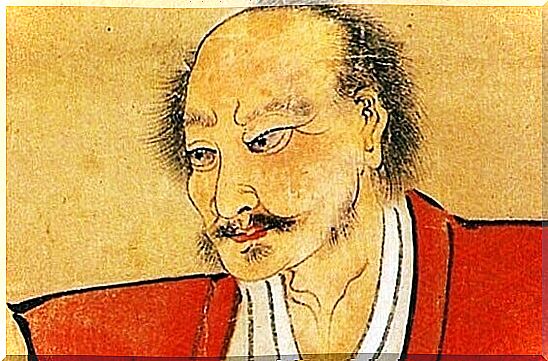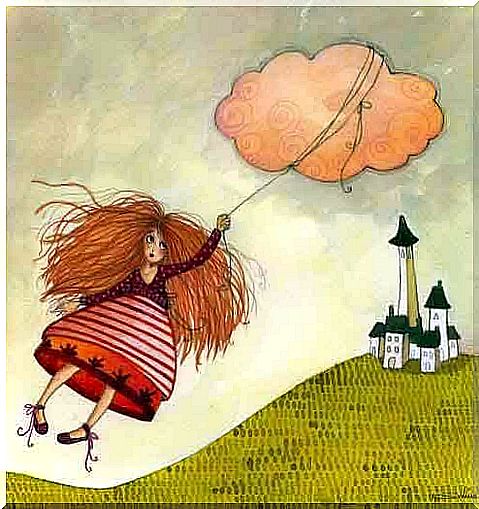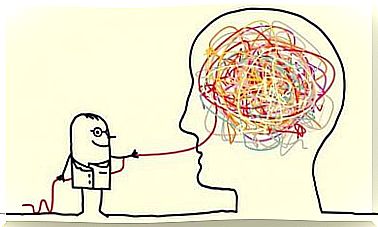The 10 Rules Of Life, According To A Japanese Buddhist Teacher

Miyamoto Mushashi was a famous samurai warrior during feudal times in Japan. He is the author of a very famous work called The Book of the Five Rings . He is also well known for writing a list of the rules of life two weeks before he died.
As a good oriental warrior, for Miyamoto the struggle was much more than a fight. The samurai placed a very high value on personal development. The latter was precisely the way to convert into good fighters. Miyamoto’s rules of life have survived the passage of time, as happens with the classics. In these rules is gathered all the wisdom of someone who has lived with value and according to noble causes. We have synthesized these precepts into ten guidelines which we will share below.
1. Acceptance, the first of the rules of life
The first of the rules of life is to accept life in itself, such and such as it is. Acceptance does not mean resignation but humility. Life is what it is; and on each of us depends an attitude: that of learning from circumstances that we have not chosen, but with which we must coexist.
The concept of non-acceptance of reality is permanent suffering. This gives rise to an interior battle which is systematically lost. Accepting, on the other hand, allows you to learn from each situation.
2. Think little of yourself and a lot of others
Whoever thinks about himself excessively ends up getting lost. It puts up a wall in front of the world and feeds its insecurities. Allowing yourself to be is more adequate than thinking in yourself.
True happiness is found in the power to serve others. There is nothing like the satisfaction of doing a good deed. He who is generous demonstrates his power at the same time. This is ultimately what allows him to appreciate himself personally.

3. Learn to let go of desire
Desire, understood as longing for what one does not have, only leads to eternal dissatisfaction. Having it is like a bottomless barrel – the more you have, the more you want. In addition, it is every time more difficult to satisfy you.
Miyamoto, like many Orientals, struggled to eradicate desire. He who desires a lot is very frustrated. Real power lies in the ability to give up desire. He who needs little is happy with little.
4. Avoid leaving room for regret
Regret causes a lot of suffering. The worst part is that it is a pointless feeling. This is how Miyamoto identifies him in the rules of life. He insists that we should associate error less with condemnation, and more with a characteristic associated with our nature.
Every action we take teaches us something and also changes us in some way. If it goes badly, it leaves us with a great learning curve. So in experience, nothing is negligible. The important thing is to know how to learn from everything and to enrich our background.
5. Eliminate complaints and grudges
Complaining only helps to flood a person with bad energy. It also torments those around you. Complaining makes no sense because instead of creating movement towards action, it ends up paralyzing the action.
By Miyamoto’s rules of life, complaints and grudges poison those who feel them. They are useless. On the contrary, they damage like a plague other feelings which are positive for them.

6. Leave out items you don’t need.
Objects influence our emotions and our way of seeing life. If we are too attached to them, they end up exerting control over us. They make our consciousness less free.
This especially applies to things we no longer need and which we keep despite this. Ultimately, these things turn us into more uncertain and rigid people. For this in the rules of life, we insist on the fact that it is necessary to get rid of what is unnecessary.
7. Don’t blindly follow the beliefs of others
Basically, Miyamoto talks about maintaining confidence in our criteria. It refers to believing in the common sense that one has, respecting one’s own beliefs and values. By acting in the opposite way, a person becomes very manipulable.
No one needs to be told what is right or what is wrong. Everyone is able to decide this for themselves. Following others blindly only leads to betrayal of oneself at one point.
8. Always keep your honor
Honor is a nearly forgotten word. It has to do with self-esteem and with not allowing ourselves to fall into behaviors that are in dissonance with the values we defend, the values in which we believe. These values would constitute a kind of compass giving rise to pride when they are respected despite the temptations.
Honor is the most valuable asset of any individual. An honorable person inspires respect and consideration. It attracts the goodwill and consideration of others, even enemies. This is how honor gives value to life; a value that is very intimate and personal.

9. Love must not be overwhelmed by attachment
Emotions are usually impulsive responses. If they are reasoned, they turn into feelings. The latter are deeper and more balanced. They are associated with values and not with necessities.
Love is an amazing feeling. On the other hand, we sometimes call love a blind and passing emotion. It happens when what inspires love is the appetite for something or attachment. In these cases, it does more good than it is beneficial.
10. Don’t be afraid of death
It is a fact, we are mortal. Life ends and it is a natural reality. We should therefore not be afraid of our own death or that of those who are dear to us. Thus, we can overcome the fear of death by living life intensely.
Miyamoto’s Rules of Life have survived time because of the important wisdom they are endowed with and also for all that they inspire. Appeal to realism, humility and inner peace. Seek to focus on the essence and not on the apparent and the insignificant.










